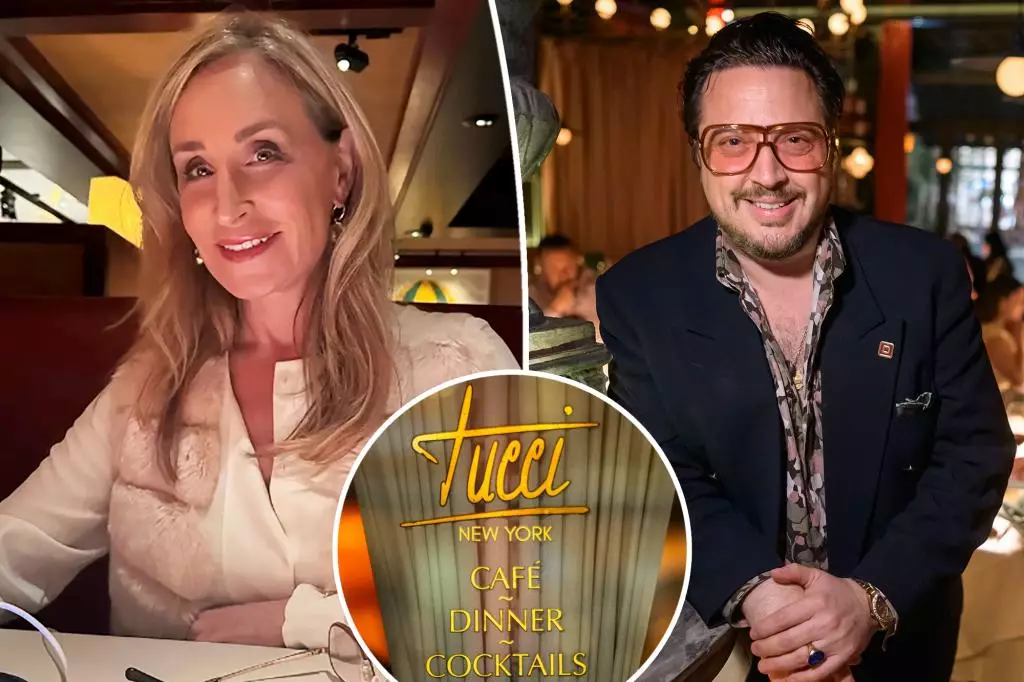In a shocking turn of events tinted with drama and entitlement, former “Real Housewives of New York City” star Sonja Morgan recently displayed behavior that raises important questions about the relationship between fame and personal responsibility. Her escalating demands at the upscale restaurant Tucci, accompanied by a sizeable bill of nearly $1,000, echoes a broader narrative that celebrity culture can sometimes detach individuals from the realities of everyday life – including the requirement to pay for one’s meals.
On a busy Saturday night, Morgan’s expectation of complimentary dining sparked a chaotic scene that insiders laughably compared to a scripted episode of her reality show. The crux of her discontent stemmed from her belief that, as a public figure and a self-identifying “celebrity,” she should be exempt from such conventional courtesies as paying for a meal. It’s a surreal assertion that asks: how does one navigate the gray area between influencer status and personal accountability?
Miscommunication or Manipulation?
Morgan’s insistence on being compensated with a complimentary meal culminated in a frantic phone call to Tucci himself. Reports indicate that when faced with the reality of her $1,000 check, she proclaimed, “I don’t pay; people pay me,” further cementing her perceived entitlement. This extravagant assertion raises eyebrows and prompts serious reflection on how some public figures may view their societal roles as one of privilege rather than contribution.
While Morgan later clarified that she believed she was dining in exchange for a promotional post – a typical practice among influencers – the gap between her expectations and reality is jarring. How reasonable is it to expect a restaurant to comp an entire party’s meals without any prior confirmation or arrangement? This is not merely a story of a celebrity having a meltdown; it underlines the often blurry lines between negotiation and assumption in the age of influencers.
A Stand for Service Industry Integrity
Restaurant owner Max Tucci’s response to the incident shines a light on the broader implications of Morgan’s actions. By defending his staff and standing firm in his decision not to offer a free meal, Tucci is not only protecting his business but also advocating for the hardworking individuals behind the scenes. “Don’t do that to my staff,” he emphatically stated, championing the reality that dining experiences come with costs, both financial and labor-related.
Moreover, it is refreshing to see a patron reminded that their celebrity status does not grant them a license to exploit service-oriented professions. In an era where influencers and personalities often overshadow the hard work of many, Tucci’s refusal to bend to Morgan’s whims is almost revolutionary. It emphasizes an important lesson: that respect and accountability should extend beyond the boundaries of fame and social media influence.
In the fallout from this incident, it’s fair to question whether such behavior might provoke a shift in how society views influencers. Perhaps when insights like these emerge, it can inspire public figures to act with greater humility and understanding, recognizing that their celebrity often does not exempt them from the basic social norms we all must follow, including paying for food!

